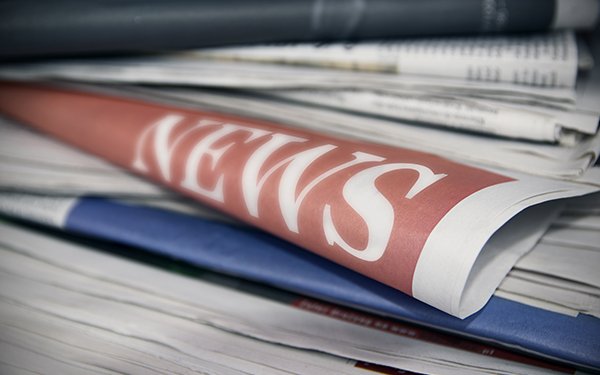
In recent years, it seemed like Warren Buffett
was the only cheerleader left for the newspaper industry among big investors. Even better, he was willing to put his money where his mouth was. He bought a few dozen local papers, based on his belief
that their community connections would help them weather the tough digital transition.
But now, it looks like even the Oracle of Omaha is having his doubts.
In an interview with CNBC
last week, Buffett held out hope for a few big national newspapers that have the reach and resources to manage the long-term transition to digital distribution. But he warned that the future is in
jeopardy for the vast majority of local, regional and metro daily newspapers.
“There are only two papers in the United States that I think have an assured future because they have a
successful Internet model to go with their print model, and that’s The Wall Street Journal and The New York Times,” which have both developed “an online presence
that people will pay for,” according to Buffett.
He added that The Washington Post, with the resources of Amazon founder Jeff Bezos behind it, may also clear the digital
hurdle.
However, Buffett then painted a dire picture for the rest of the business, noting: “There are 1,300 daily papers left in the United States,” down from “1,700 or 1,800
not that many years ago.” These publications, serving mostly small and mid-sized communities, “haven't figured out a way to make the digital model complement the print model in such a way
as to guarantee the future.”
The trend lines are clear, he added: “Circulation is going down significantly.” On the advertising front, “it used to be dozens and dozens
of pages of help wanted ads [but] it’s basically disappeared, and no one has found the answer to that yet.”
This is a discouraging change in tone for Buffett, whose holding
company, Berkshire Hathaway, acquired over 30 small and mid-sized newspapers in 2012-2016, reflecting his belief that “newspapers continue to reign supreme, however, in the delivery of local
news. If you want to know what’s going on in your town -- whether the news is about the mayor or taxes or high school football -- there is no substitute for a local newspaper that is doing its
job… Wherever there is a pervasive sense of community, a paper that serves the special informational needs of that community will remain indispensable to a significant portion of its
residents.”
There is little argument about Buffett’s assertion that the future of the newspaper business rests largely on convincing readers to pay for content through digital
subscriptions, online paywalls, or some other means.
In the case of The New York Times Co., circulation revenues -- powered by print and digital subs -- made up 51% of the company’s bottom
line in 2016, up from 27.5% in 2006, while advertising fell from 65.5% to 42%.